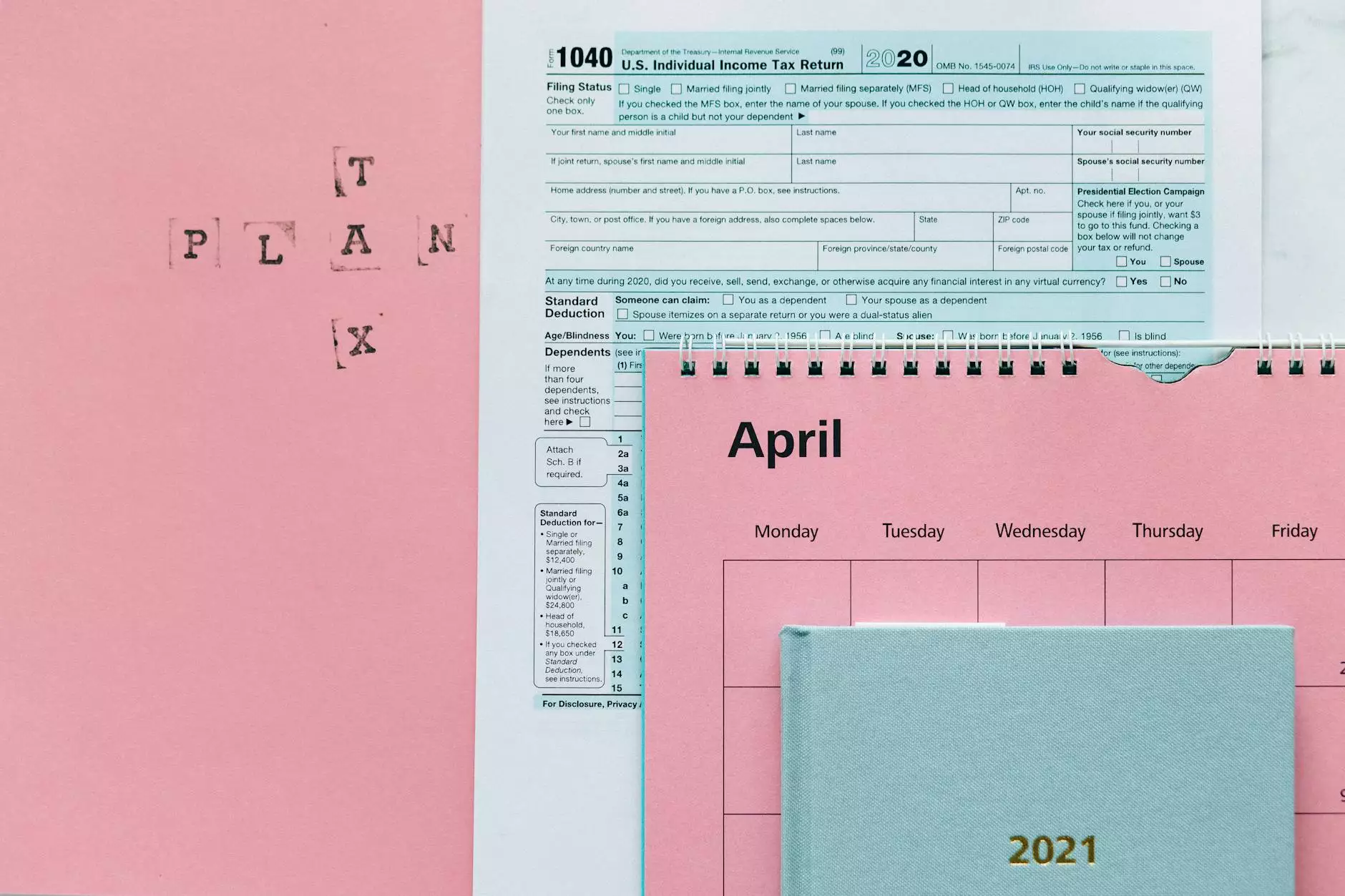How Long Should You Keep Your Tax Returns? A Comprehensive Guide

Managing your financial records is essential for anyone who wants to maintain a healthy financial status. One of the most common questions people ask is how long should you keep your tax returns? Proper record-keeping not only helps you stay organized, but it also ensures that you comply with legal requirements and are prepared in case of an audit. In this article, we will delve deep into the recommended duration for keeping your tax returns, the benefits of retaining these documents, and tips on how to manage your records effectively.
The Importance of Keeping Tax Returns
Your tax returns serve as a crucial part of your financial history. They provide a detailed account of your income, deductions, and credits for a given tax year. Keeping these documents is essential for several reasons:
- Audit Protection: The IRS can audit your returns for up to three years after you file. If you claim certain tax credits or losses, that period can extend to up to six years.
- Proof of Income: Tax returns are often required as proof of income when applying for loans, mortgages, or other financial transactions.
- Future Reference: Keeping records helps you track your financial history, making it easier to identify patterns or prepare for future tax years.
- Tax Deductions: Certain deductible expenses can be claimed over multiple years. Historical data can be beneficial for these claims.
How Long Should You Keep Your Tax Returns?
General Guidelines
As a rule of thumb, it is generally recommended to keep your tax returns for at least three years from the date you filed or the due date of the return, whichever is later. However, specific situations may require you to retain them for longer periods:
1. Three Years
The three-year rule applies to most taxpayers and is the period during which the IRS can audit your returns without specific cause. If you claim a refund, ensure you hold onto your tax returns for at least this duration.
2. Six Years
If you omit more than 25% of your gross income from your tax return, the IRS extends the audit period to six years. In such cases, it’s prudent to keep your documents for this extended duration.
3. Indefinitely
If you do not file a tax return or file a fraudulent return, there is no statute of limitations, and the IRS may audit you indefinitely. Thus, it is wise to keep your records indefinitely in such cases.
Special Situations
Consider additional factors that could affect how long you keep your tax returns:
- Property Records: If you have property, keep the records related to your property taxes as long as you own the property plus three years after selling it to ensure you can account for gains or losses.
- Retirement Accounts: Maintain records related to retirement accounts until you are completely certain that you won’t need them for withdrawal purposes.
Best Practices for Organizing Your Tax Returns
Now that you understand how long you should keep your tax returns, let’s explore some best practices for organizing these important documents:
Digital vs. Paper Records
Deciding whether to keep paper copies or digital versions is crucial. Digital records are easier to store and retrieve. Here are some tips on handling both:
- Scan Documents: Invest in a scanner or use a mobile app to scan your paper tax returns and supporting documents. Ensure you save them in a consistently accessible format.
- Use Cloud Storage: Store your digital files in a reliable cloud service. This allows access from anywhere and provides a backup in case of a disaster.
- Labeling and Folders: Create a structured folder system for your tax documents, both physical and digital. Having a specific labeling system will help you find your documents when needed.
Setting Reminders
Set reminders to annually review your tax documents and decide which ones can be disposed of safely. Calendar alerts are an excellent way to stay organized and ensure you do not keep papers longer than necessary.
Consulting with Professionals
Consulting with a tax professional, such as one from taxaccountantidm.com, can provide clarity on what needs to be kept based on your individual financial situation, especially if your circumstances are complex.
Benefits of Keeping Tax Returns
Maintaining an organized system for your tax returns can provide several benefits, including:
- Ease of Mind: Knowing your important documents are organized and accessible helps reduce anxiety during tax season.
- Financial Insight: Reviewing your past tax returns allows you to gauge your financial growth over the years.
- Tax Preparation: When the next tax season arrives, having your previous returns at hand facilitates smoother preparation and accurate filings.
Conclusion
In conclusion, understanding how long you should keep your tax returns is vital for effective financial management. Following the guidelines provided, you can ensure that you have the necessary documents available when needed, while also being aware of how long you can responsibly dispose of records. Remember, whether opting for digital or paper storage strategies, organization and diligence are key to financial health. For more personalized advice and professional support, consider reaching out to financial services offered by taxaccountantidm.com. Stay informed, organized, and prepared for your financial future!



